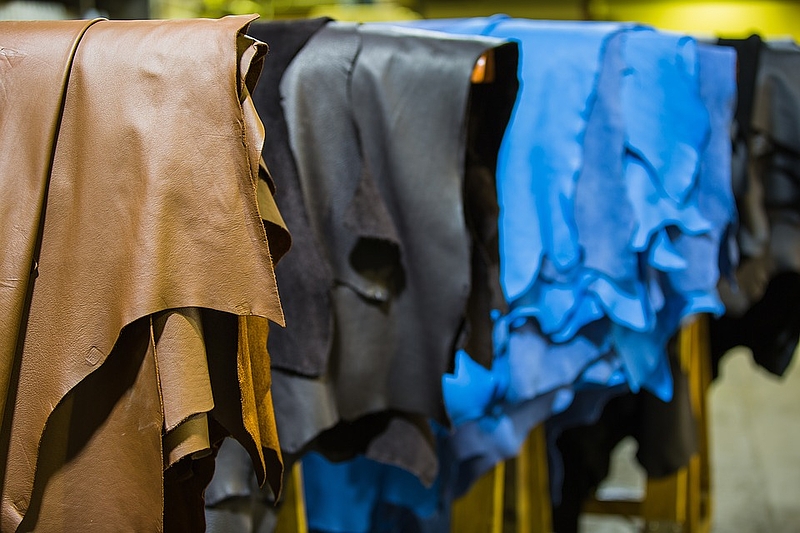Kanpur tanneries win awards for innovations to reduce environmental impact

Kanpur is the oldest and largest industrial city of India’s most populous state, Uttar Pradesh. One of the city’s most important industries is tanning, the process of treating skins and hides of animals to produce leather.
In and around Kanpur, there are hundreds of small, medium and large tanneries treating various animal hides and skins to produce the leather that is manufactured into a wide array of leather products, including shoes, clothes, belts and bags, destined for markets in Europe and North America.
But while the success of the leather industry has boosted the local and national economy, there has been a high cost in terms of damage to the environment and to the health of leather workers and local residents.
The tanning process uses toxic chemicals and produces acidic effluents. When tannery wastewater is discharged without being treated it pollutes the soil and ground water and contaminates waterways, including the nearby River Ganges.
The Kanpur Leather Development Project, implemented by the United Nations Industrial Development Organization (UNIDO), is introducing cleaner technologies to help tanneries to both reduce the negative impacts on people’s health and the environment, and save money on water and energy costs.
The cleaner technologies introduced include processing chilled hides, hair-save unhairing/liming, desalting salted raw hides, recycling of lime liquors, use of water-saver devices in fleshing machines, and use of solar energy to generate hot water and hot air systems.
Since the project began in November 2015, the introduction of these technological innovations at 17 tanneries of varying sizes and at different sub-clusters in Kanpur has already shown impressive reductions in the volume of effluent generated, the amounts of organic and inorganic pollutants and heavymetals in waste, and the production of hazardous waste in general, as well as reduced water and energy use.
As part of the project, this year, UNIDO, together with the Council for Leather Exports and the Kanpur Unnao Leather Cluster Development Company, organized an innovation award contest to turn the spotlight on the Kanpur tanneries that have successfully implemented cleaner technologies.
The winners of the inaugural contest were announced at an award ceremony in Kanpur on 21 July.
A jury comprised of leading industry representatives and international experts awarded prizes to Kings International Ltd in the category for larger establishments transforming raw hides into leather (runner-up: AKI India Ltd), and to Heena Leather Exims for smaller tanneries producing from raw to semi-finished (runner-up: Tej Industries).
Kings International Ltd, established in 1994, employs around 275 workers engaged in the processing of bovine hides from wet-salted raw hides through to the finished leather stage producing leather products, such as harnesses and saddles, pets and hunting accessories, wallets, belts and bags.
The company was selected as the best in its category for its energy and water conservation, waste management, recycling and reuse of resources, technological innovations, and advances in workers’ safety and occupational health.
As well as introducing at least 10 measures to monitor, control and prevent pollution at source, Kings has introduced an energy conservation and management system to reduce the company’s carbon footprint. The latter includes the installation of around 100 air-driven ventilators in the tannery sheds and the first phase of a solar power plant that will run the entire factory on green energy.
For its part, Heena Leather Exims, the winner of the smaller tanneries category, was rewarded for its water conservation and primary effluent treatment measures.
See also: Fresh chilled hides will allow leather producers to cut down on salt use, reduce pollution
by Charles Arthur
Further reading: